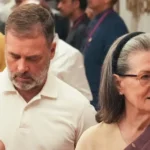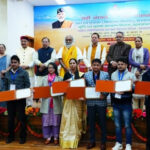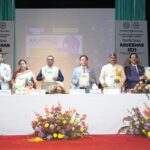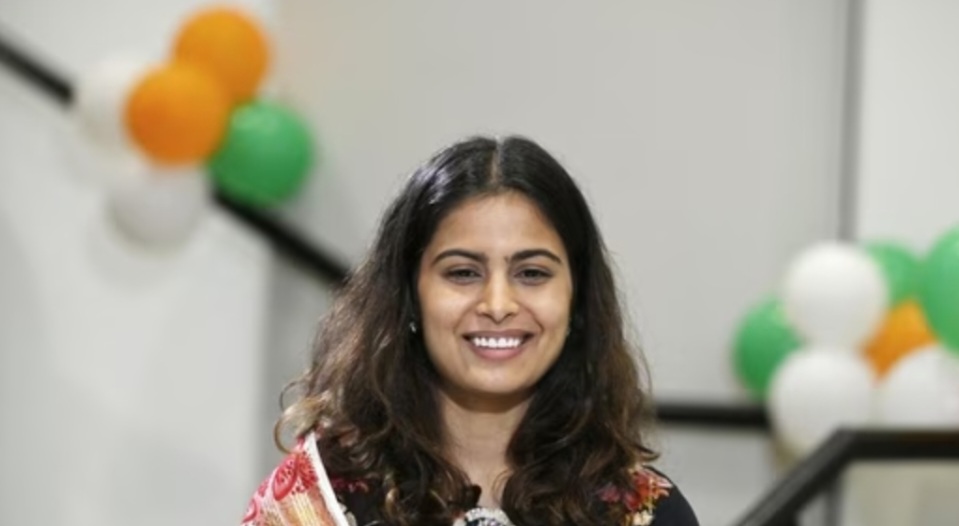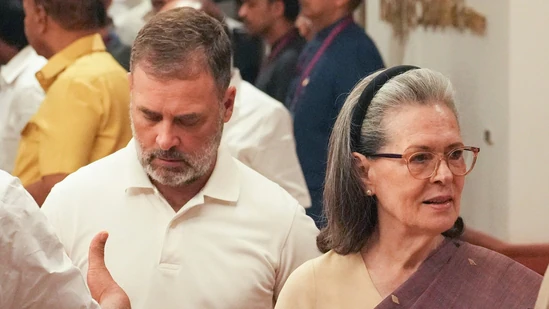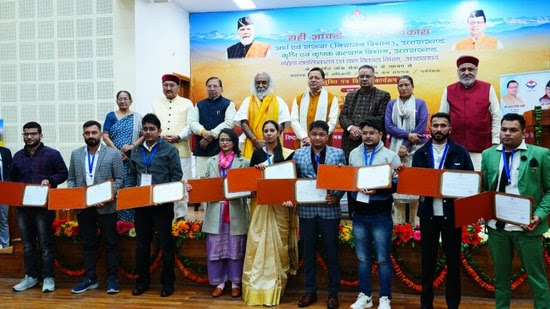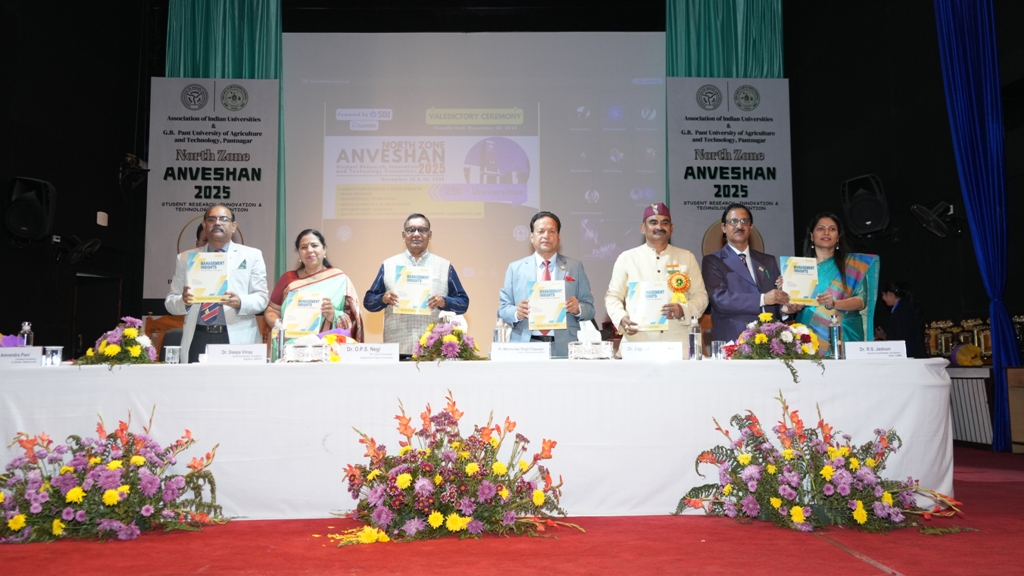Himalaya Harbinger, Rudrapur Bureau
New Delhi: The last couple of weeks have been everything that Manu Bhaker dreamt of and a little bit more. The double Olympic medallist has been meeting politicians, becoming the flag bearer for India at the Paris closing ceremony, going for events and getting constantly asked for autographs and selfies. But bring up the Olympic medals and all the madness melts away into a smile.
The 22-year-old dropped into the Hindustan Times office to talk amongst other things about the brilliant run in Paris and what India needs to do to catch up with the top nations. Excerpts
You have gone from the disappointment of Tokyo to the joy of Paris. What made the difference at the Olympics?
I was very scared in Tokyo; very scared of disappointing people and I let that pressure get to me; get into my head. Because of which I lost out on the opportunity to even qualify for the finals. It took me a long time to overcome that but now I think the past is in the past. I have put it behind me. At Paris, I took many lessons from Tokyo, which is why I was able to get these two medals.
So what were these lessons?
The first one was to not be scared and be confident. Last time, I was very, very nervous. This time, I was nervous as well but I was not scared. The second was that no matter how bad a phase you are going through, you can find a way. For example, before Tokyo, I was world No.2 but this time I had not shot at any major competition or won at any major competition before the Games because of my injury. Overcoming that and coming to Paris and winning this medal… I had a few doubts but I did not let them weigh me down.
Every athlete has an internal dialogue. What were you telling yourself before you stepped out for your first event in Paris?
I was training in a manner that my scores were very consistent in training also, so I was trying my best to do the same in the competition too. The one thing I kept telling myself in the match was, ‘Come on, you got this! Come on, you can do it!’ And if I felt myself falter even a little… I would look up at my coach (Jaspal Rana) and he would ask me to be courageous. I was more in the attack mode and not in a defensive mode.
You were absolutely brilliant in the mixed event. Was that just your performance in the individual competition giving you a boost?
Yes! I was very good in the qualification round and the bronze medal match. I feel happy because my groups were so good. I think the entire event was amazing. We qualified in the third position and because of that we had to settle for the bronze medal match. I didn’t quite know how the match would go but from the beginning itself my groups were so close and I think I had just two bad shots. Other than that, it was amazing. This wasn’t just the effect of the earlier round but I would say that I had trained for it. I trained for every match separately — different for 10m qualification, mixed doubles, 25m and for the finals too.
So what is the kind of mentality that you train with in each of them?
I try and push myself as much as possible in qualification as well. All my scores were brilliant. For the finals, I try and push myself for each shot. But in finals because of the crowd and the noise, the nervousness is so high that the heart is racing and things feel out of control. But we try and manage it. In training, my support staff would make all kinds of noises — they would shout, play loud music, everything. And it all worked out in the end. In shooting, you have to be very patient and calm. You have to focus on yourself; you cannot react, you cannot talk.
You have been part of the set-up for so many years now. Is everything about shooting just second nature to you?
It has been 8.5 years for me in this sport. It has taught me so many things… so many things. Definitely patience is one of them. Earlier, I was not a very patient kind of person — always very impulsive, aggressive about things… now I have become calmer. Experience matters. I saw the fall. In 2018-19, I was at the peak but after the Covid pandemic, I was not able to perform as well as my earlier years. And then how I rose up… I think that was the very important part of my or maybe any athlete’s career. I think it is really beautiful to rise after experiencing a low.
No, I did not try everything. I know what my strengths and weaknesses are. I try to improve my weakness and I try to maintain my strengths. I do not like to experiment much in my shooting because, I believe, it takes a long time to adapt to it and become comfortable with it in order to win. In matches, for instance, when I use a new grip and don’t perform as well, I would have doubts that it happened because of the grip. And I don’t like that. But when it is needed, I go bold with it. I do not like to keep doubts in my head. If I need to change something, I will do it and then give it a try for a week. I will not change it after a day. I will give it some time and after that, I will take a call, put it aside and never think about it again.
What did you make of India’s haul at Paris?
Personally, I believe Indians have a lot of talent and we have many athletes who can perform well. The performance could have been better but at the same time we cannot ignore that the other countries are also trying their best to win as many medals as possible. We are still learning many things and developing and we are trying our best in many sports. Compared to Tokyo, the performance was better and I feel there was definitely a better connect with the athletes in India. We have scope for improvement but just one organisation cannot bring about positive change. Everyone needs to come together to make it work.
Three things that can be done to help India close the gap on the big medal winners at the Olympics…
One, I think better planning. For injury prevention and also for when to peak. Sometimes, you keep shooting in competitions but do not plan for when to put our best foot forward. In my case, my coach does that for me. So better planning.
Two, have better scouting so that we can get youngsters into sports early. In shooting, you can start as a 12–13-year-old kid. In boxing, as a 7–8-year-old. In gymnastics, we can start at 5-6 years. I think these programmes should be more visible and people should have access to it. If we want to produce world class athletes, we need to work on the grassroots level. Schemes like Khelo India are working on this but I think we need more than that. We can’t wait till somebody becomes 16. We need to scout them early, train them and then have faith in them. In shooting, for example, they have three chances and then they are out of the camp. I have seen this in China, their planning is crucial and way better than how we do things.
Three, we have had Olympians last time around. We should give them the opportunity to come back and keep them in the loop. I am not sure whether this will happen at the government or the federation level. An athlete’s career is full of ups and downs. You cannot be at the peak forever and so many athletes are lost in this.
One of the athletes you are talking about is, of course, Saurabh Chaudhary…
Honestly, he is the best shooter I have seen in my career. Nobody, not even a foreign shooter, comes close. He is the finest one I have seen in my life. We don’t quite know what happened… whether he lost interest or it was something else. But it is our responsibility to give him the opportunity if he still wants to shoot and to motivate him to get back to his true calibre. I really felt for him in the mixed event and thought, ‘he should have been here.’
